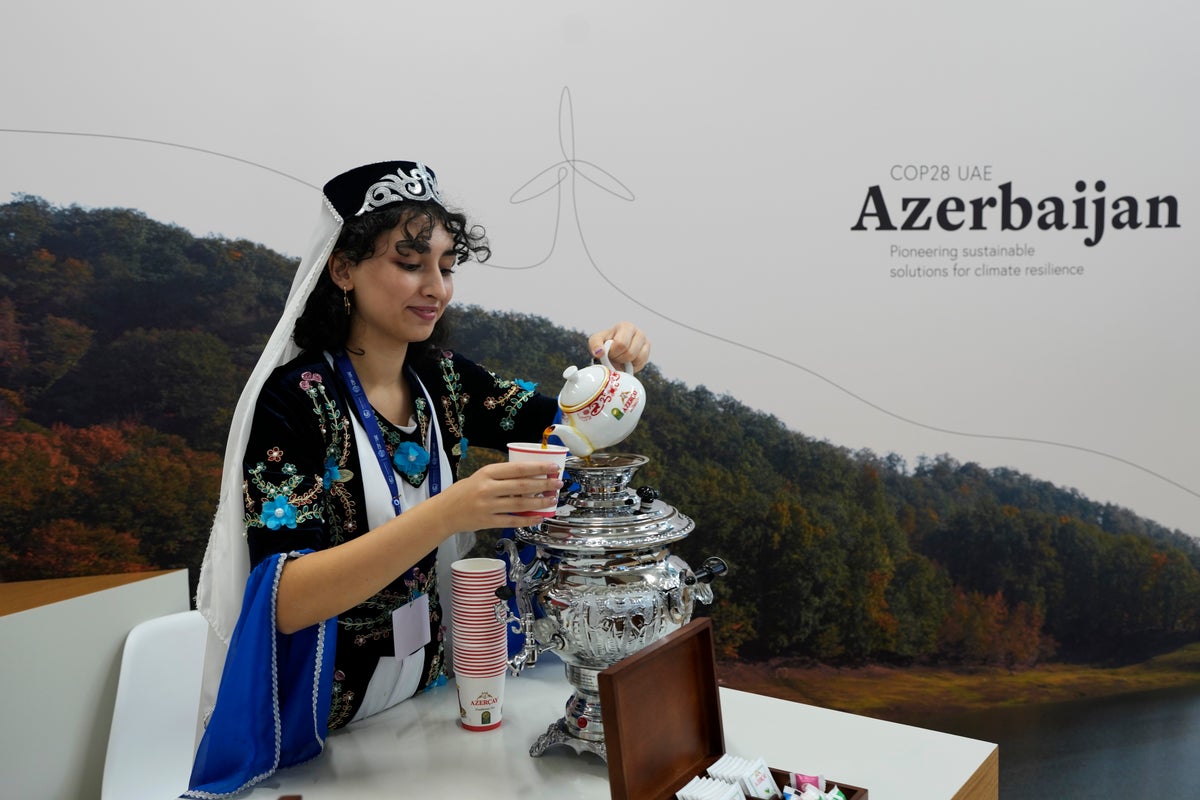
For years, climate change has been a factor — not the only one — in wars and conflicts. Now for the first time, it's part of a peace deal.
A long-time stand-off that had turned the choice for next year's United Nations climate talks into a melodrama and mystery resolved as part of a prisoner swap settlement between Azerbaijan and Armenia. It set the stage for the COP29 climate talks in 2024 to be in a city where one of the world's first oil fields developed 1,200 years ago: Baku, Azerbaijan.
It also means that for back-to-back years an oil powerhouse nation will be hosting climate talks — where the focus is often on eliminating fossil fuels. And it will become three straight years that the U.N. puts its showcase conference, where protests and civil engagement often take center stage, in a nation with restrictions on free speech.
In 2021, the COP was in Glasgow, where the modern steam engine was built and the industrial revolution started.
“It's very ironic,” said longtime COP analyst Alden Meyer of the European think-tank E3G.
Climate talks historian Jonna Depledge of Cambridge University said, “there’s nothing inherently wrong with that. On the contrary, this is where the change needs to needs to happen.”
“The fact they want to step up and be a climate leader is a positive thing,” said Ani Dasgupta, head of the World Resources Institute and a former Baku resident. “How will they do it? We don’t know yet.”
It's also about peace. In its announcement about a prisoner exchange, the governments of Armenia and Azerbaijan wrote: “As a sign of good gesture, the Republic of Armenia supports the bid of the Republic of Azerbaijan to host the 29th Session of the Conference of Parties ... by withdrawing its own candidacy.”
Climate change often causes drought, crop failures and other extreme weather that is a factor in wars from sub-Saharan Africa to Syria, Dasgupta said. So it's nice for climate change to be part of peace for the first time, he said.
This month's talks in Dubai were planned more than two years in advance, while the Baku decision is coming just 11 months before the negotiations are supposed to start.
The United Nations moves the talks' location around the world with different regions taking turns. Next year is Eastern Europe's turn and the decision on where the talks will be held has to be unanimous in the area. Russia vetoed European Union members and initially Azerbaijan and Armenia vetoed each other.
But the peace decision cleared the way for Baku, and all that's left is the formality of the conference in Dubai to formally accept the choice for 2024, United Nations officials said.
___
Read more of AP’s climate coverage at http://www.apnews.com/climate-and-environment
___
Follow Seth Borenstein on Twitter at @borenbears







